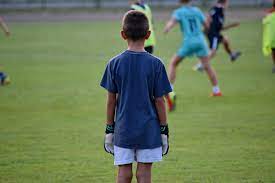Adverse Coaching: The Downfall of Student Athletes
January 27, 2023
Good players can’t overcome bad coaching, but bad coaching can overcome good players.
Athletes have no problem doing hard work or having someone push them to do better. But when the coaches are rude, constantly negative and even embarrass their athletes, it makes the athletes question why they still play. Most will tell you they play to learn and compete but also to be with friends and have fun.
Many kids will go into a sport full of great potential, that is until the coach destroys their mental game. A bad coach can make kids start to lose interest in the sport. Many students will go through the process of dreading the idea of going to practice and counting down the days until their season ends.
Sport psychology today explains how youth coaches are critical to sport experiences. They influence whether young athletes enjoy sports and want to continue playing. Some coaches can get kids excited about sports, while other coaches may discourage kids or take the fun out of the game.
A student at FMHS gave their insight on a coach of their own, who the believe took the fun out of their sport. This student wishes to remain anonymous to speak openly about their experiences without singling out specific sports or coaches. “I used to love my sport. It was a place to destress and get my mind off the rest of the day. But over time, I started to lose interest. My coach always told me what I was doing wrong, and I could never seem to impress them no matter how hard I worked.” They continued, “I understand it’s the coach’s job to push you, and I appreciate having someone to do so. But when you’re always only getting negative feedback, you start to feel discouraged, and I’ve lost my love for the sport. Going to practice quickly becomes the worst part of my day, and competitions only create an overwhelming sense of anxiety.” This student is not the only one that feels this way. “It’s not just me either. I hear it from most of the other athletes on the team. And even parents begin to notice.”
The coaching on these types of teams causes many student athletes to quit. Some quit the sport altogether, while others find different teams to play for.
Another student at FMHS has a similar issue with their coaches. “I’d just say that coaching is more than pushing athletes physically. Regardless of how anyone performs, mental health is a major aspect of well-being. I know of a lot of people who, after years of hard work and dedication, gave up on a sport that they truly loved simply because there was too much pressure with too little support.” They added on, “So in terms of coaching, you have to understand that athletes are more than just their physical abilities. You can’t compartmentalize sports and mental health when the two are irrevocably intertwined. To say athletic ability has no connection to mental health is a significant oversight. In short, I feel that certain coaches can certainly do more in terms of being less harsh and more understanding because in the end, that really does make a huge difference on how athletes perform.”
It’s crucial for athletes to be provided with a coach that pushes them to be their best while keeping the sport enjoyable. If students are doing a sport that drains them, this is going to greatly impact their mental health. There’s this balance that needs to be found. Athletes want to go D1 and be at the top of their game, yet also enjoying the sport and creating fun memories.

